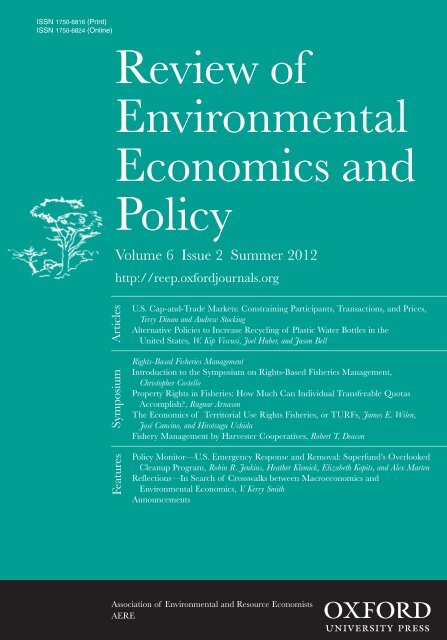气候变化、流行病和不平等
IF 6.6
3区 经济学
Q1 ECONOMICS
引用次数: 1
摘要
气候变化、流行病和社会经济不平等之间有什么联系?虽然最近的大流行将注意力集中在流行病对经济结果的影响上,而且气候科学和环境卫生方面的另一篇文献将全球环境变化与传染病流行的增加联系起来,但将这两种文献联系起来的工作相对较少。我们首先回顾了模拟全球变暖对传染病流行影响的科学文献,探讨了气候变化、流行病和群体不平等之间的联系。我们强调了气候变量(如温度、降水和风速)和适应气候事件的人类行为(如迁移)可能促进传染病传播的方式。然后,我们利用来自非洲脑膜炎带的证据,研究了气候引起的流行病对性别不平等的影响。研究结果表明,流行病可能使本已处于经济不稳定状况的群体的状况恶化,从而扩大基于群体的社会经济不平等。消除流行病负面影响的有效政策必须注意不增加现有的基于群体的不平等,并应旨在通过尽量减少对社会中最边缘化群体成员的损害来减少这些不平等。本文章由计算机程序翻译,如有差异,请以英文原文为准。
Climate Change, Epidemics, and Inequality
What are the links among climate change, epidemics, and socioeconomic inequality? Although the recent pandemic has focused attention on the effects of epidemics on economic outcomes, and a separate literature in climate science and environmental health has linked global environmental change to an increase in infectious disease epidemics, there is relatively little work connecting these two strands of literature. We explore the links among climate change, epidemics, and group-based inequality by first reviewing the scientific literature modeling the effects of global warming on infectious disease epidemics. We highlight the ways in which climate variables (such as temperature, precipitation, and wind speeds) and adaptive human behavior (such as migration) in response to climate events may facilitate the spread of infectious disease. We then examine the effects of climate-induced epidemics on gender inequality using evidence from the African meningitis belt. The results show that epidemics can worsen outcomes for groups in already economically precarious circumstances, thereby widening group-based socioeconomic inequality. Effective policies to combat the negative effects of epidemics must be mindful not to increase existing group-based inequalities and should aim to reduce these inequalities by minimizing damage for members of the most marginalized groups in societies.
求助全文
通过发布文献求助,成功后即可免费获取论文全文。
去求助
来源期刊
CiteScore
10.80
自引率
0.00%
发文量
25
期刊介绍:
The Review of Environmental Economics and Policy fills the gap between traditional academic journals and the general interest press by providing a widely accessible yet scholarly source for the latest thinking on environmental economics and related policy. The Review publishes symposia, articles, and regular features that contribute to one or more of the following goals: •to identify and synthesize lessons learned from recent and ongoing environmental economics research; •to provide economic analysis of environmental policy issues; •to promote the sharing of ideas and perspectives among the various sub-fields of environmental economics;

 求助内容:
求助内容: 应助结果提醒方式:
应助结果提醒方式:


